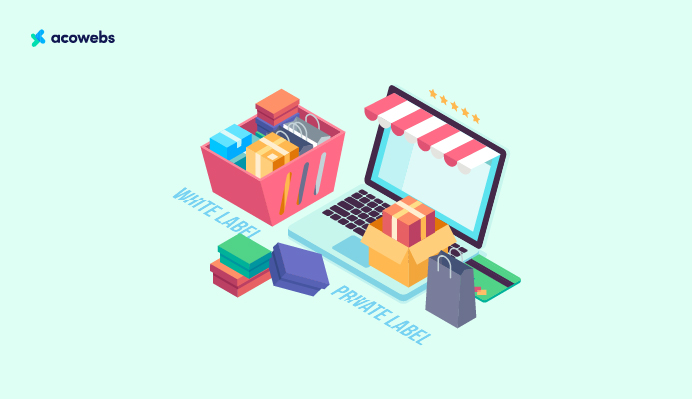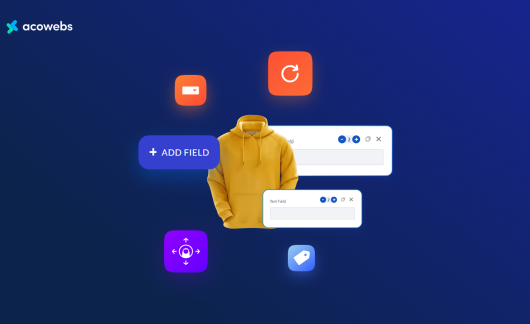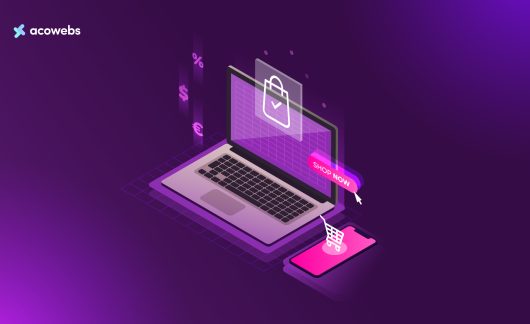In the eCommerce business, many people are trying to create a profitable business. Sellers has discovered the dropshipping model to be one of the most popular models where sellers can market products without the headache of managing inventory. The most popular methods are private label and white label drop shipping. These two models are each a different way to be successful, working toward different goals and different budgets.
In this article, I am going to explain what are the differences between two of the most popular option for dropshipping business: White label dropshipping and private label dropshipping, what are their pros and cons and how to pick the perfect one according to your eCommerce business. These models will assist you in the formation of a sound, profitable brand in the cutthroat market of today’s digital environment.
What Is Private Label Dropshipping?
The term private label dropshipping means selling only under your brand. Manufacturers produce the items, and you define what you want, with your own branding, logos, eCommerce packaging, and product features.
Definition and Core Features
You own the branding of the product you’re selling in private label dropshipping. If you are a business looking to carve out a place in the market through something unique, this is very effective.
How It Works
Customization Opportunities
Private labeling is with the king of customization. You can then transform the product to the way you’d like it to look and the packaging in the way that you’d want it to be; the perfect fit in a brand identity and within customers’ expectations. For example, skincare brands private label their formulas so we can customize it according to our target audience.
Branding Advantages
Private labeling gives your customers a unique relationship with you. We trust a strong brand of a product that helps a customer make repeat purchase or a loyal customer. With this approach you will be able to make your business a premium brand in your industry as time goes by.
What Is White Label Dropshipping?
When talking about White label dropshipping, selling pre-made products from manufacturers is what we call it. You can put your brand on the product, but the product is sold by many businesses with different brand names to the same product.
Definition and Core Features
White labeling is an easy to do, simple approach that businesses can take to get into the market fast. You don’t have to design or manufacture new stuff, you just rebrand what already exists.
How It Works
Simplicity in Product Sourcing
They’re ready to sell white-label products with almost zero setups. This is a great option for new eCommerce entrepreneurs because in this case, you can focus on marketing the product without spending all day developing the product.
Branding Limitations
The white labeling takes a little branding on the product, but isn’t exclusive like private labeling. Differentiation and building loyal customer gets harder if competing sellers also sell same products.
Key Differences Between Private Label and White Label Dropshipping
To make the right choice for your business between private label and white label dropshipping, you have to understand the key differences between these two and the impact they make on your business. At times they may accept your nicely prepared offer; at other times they don’t. They come with their own advantages and the best one is the one that suits your unique purpose, resource, direction you would like your brand to take.
1. Customization and Control: Crafting Your Unique Brand Identity
The biggest difference between dropping items on private label and white label dropshipping is the customization and control level over your product. If you choose private label dropshipping, then you’ve got freedom not just with the packaging and logo but also with the product itself. This gives you the opportunity to whip up a perfected product that especially hits home with your potential client. Say, if you’re selling skincare, you can pick the ingredients, design the packaging, and build your own line of products that represent your brand in your words and deeds. By having so much control, you can create a truly unique, memorable brand in your competitive market.
For instance, unlike white label dropshipping, white label packaging also includes the option to adjust the packaging as well as add your own logo. On the whole, the product is pretty unaltered from the manufacturer’s version. This can be a good option for newbies who just want someone easy to work with, but it prevents you from establishing that all-important brand differentiation. Other businesses usually sell the exact same product and, therefore, it is challenging to create a unique identity and cultivate long-term brand loyalty.
2. Startup Costs: Investing in Your Brand’s Future
White label dropshipping is generally better in terms of startup costs. White label products are pre made and thus, require minimal tweaking. This actually means that your first investment is less, so you can go about your business more quickly and with much less monetary risk. White label drop shipping makes it a good choice for new entrepreneurs who just want to test the waters or for people who don’t have a bulk capital to pump in.
However, private label dropshipping is costlier as compared to thefirst one, as it requires product customization, manufacturing, and branding. Feeding these expenses can get expensive as you design your product, make your packaging, and market. But that higher investment comes with the chance of higher returns. Custom products help you build your brand as one that’s unique and premium, which means, over time, it will result in better profit margins and a more loyal customer base.
3. Scalability and Growth Potential: Building for the Long-Term
If you are considering the scalability, and growth potential, then private label dropshipping has the upper hand on it. As your products are very unique, there is potential for your products to find a niche in the market and thus create a strong loyal customer base. That exclusivity is the foundation to create a long term brand you can grow and expand on to allow you create a point from which you have a product line and brand extensions.
But with private label products, it can be slower and more challenging to scale. In order to have success, you will have to create a brand presence, publicize your business more, make sure your supply chain can handle the demand. It can be gradual, but the pay off is long term.
On the other hand, white label products are much easier to scale quickly because white label products have been already manufactured and are ready to sell. White labeling allows you to package your product and expand your market reach without incurring massive costs for product development. But there’s a flip side to this: white-label products can be oversaturated in the market. Often, other businesses are selling the same products, and it can be tough to stand out and do well with customer loyalty. While scale. Scale is faster than differentiation, and the lack of differentiation will drop long-term growth potential in a crowded market.
Pros and Cons of Private Label Dropshipping
Private label dropshipping has no one solution that fits all. It is like any other business model; per se, it has its own set of pros and cons. These can help you chart a way to the right for your eCommerce journey. Private label dropshipping is one of the strongest contenders for any entrepreneur out there; let’s take a deeper dive into what makes that so and what are the potential drawbacks to consider.
Advantages of Private Label Dropshipping: Unlocking the Power of Customization
1. Full Branding Control: Build a Unique Identity for Your Brand
The biggest benefit of private label dropshipping is the complete control of your branding. As you only get a logo in white labeling, private labeling lets you make a product that is very original and goes in line with your brand identity and philosophy. Your power lies in the design and packaging, so you can shape your products from the look to the packaging and find your products stand out in the market. For passionate entrepreneurs with the need to build a separate brand identity that appeals to their target audience, this degree of control is priceless.
2. Higher Profit Margins: Capitalize on Exclusivity
With more profit margins than generic, white-labeled items, private-label products are often the case. This is because you’re selling a unique product that no one else is selling, meaning you can set your own prices and position that product as premium. People are often eager to spend more on something that is thought of as unique, unique or specially tailor-made and ideally fills their particular needs or supports their values. That means you have more room to make higher revenue, even with fewer sold unit, than you would for items of mass production.
Disadvantages of Private Label Dropshipping: Challenges to Keep in Mind
1. Higher Initial Investment: Quality Comes at a Cost
The initial investment is one of the highest factors in private label dropshipping. Because you’re making custom products, you’ll also need to consider manufacturing, design, packaging, and marketing costs. With private label, you don’t yet have a product ready to drop ship, and that comes at a higher cost upfront.
2. Longer Product Launch Time: Patience Is Key
The biggest negative of private label dropshipping could also be some time to launch a product. Creating a custom product involves multiple steps: So you are working with manufacturers, using them to help design your packaging, and maybe even going through rounds of revisions to get the final product to your liking. And the product can take weeks or even months before it’s ready to sell.
Pros and Cons of White Label Dropshipping
One of the ways to start an eCommerce business is easier with the help of white-label dropshipping, but there’s a downside to it as well.
Advantages of White Label Dropshipping:
- Lower Costs and Simplicity : If you are starting a new business with limited funding on hand, white-label drop shipping is an ideal option for you. The setup process is as quick and easy as it gets since the products are already manufactured and only need to have your logo added to it at this stage. in doing so, converting the setup costs are much less than it is with private label dropshipping. It helps you to begin to sell without heavy financial spending.
- Quick Time-to-Market : White label dropshipping is one of the things that make your business up and running so fast. Ready made products let’s you focus directly on marketing and sales, rather than waiting on lengthy production or custom design. It enables you to get started generating revenue fast.
Disadvantages of White Label Dropshipping:
- Limited Customization : White label products are different, they give less customization opportunities compared to private label dropshipping. You can place your logo and alter the packaging, but the product itself is pretty much the same as what other retailers sell. A lack of unique features can easily render it hard to distinguish your brand from others in the market and establish a long lasting identity for yourself.
- Reduced Brand Loyalty : Because there are multiple businesses selling the same white-labeled product, customers have more of a variety to choose from and, at times at a lower price. Building brand loyalty becomes difficult if you have no unique features and exclusivity. Without loyalty, if a customer senses that you are not offering the most competitive price, they may choose to use another brand offering the same product at the same price, and businesses with a shallow sense of loyalty are less likely to retain a loyal customer base.
Which Model Is Right for Your Business?
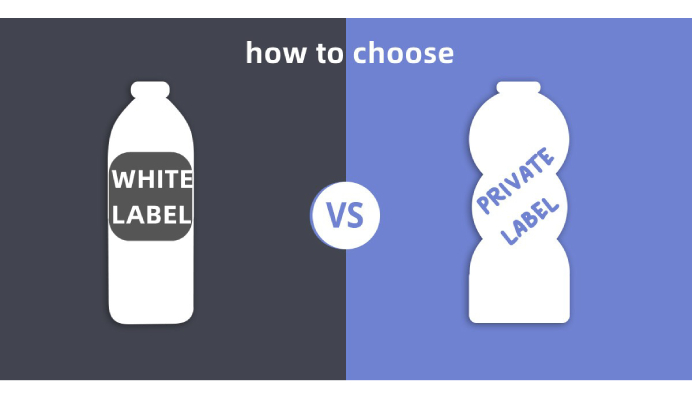
White label vs private label dropshipping – in which one should you invest? That depends on your business goals, your resources, and your target market.
Evaluating Your Budget
If you have limited capital, white-label dropshipping is better. Private labeling is a very expensive investment but it does pay off in the long run.
Assessing Your Branding Goals
Private label dropshipping will be ideal for entrepreneurs with a value to the branding and a desire to build a unique product line. While the white label is great for fast entry, fast turnaround, and simple operations, you may want to walk before taking the leap of white label.
Matching Business Models with Niche Markets
Private labeling works better sometimes than private labeling for instance, when health supplements or luxury goods require exclusivity. In contrast, most of the products you see everyday like phone accessories are always going to work well in white label drop shipping.
Real-World Examples of Success in Both Models
Private Label Success Stories
For brands like Gymshark and Kylie Cosmetics, private-label dropshipping has worked. Due to making unique high-quality products and investing in branding, they’ve built up loyal customer bases.
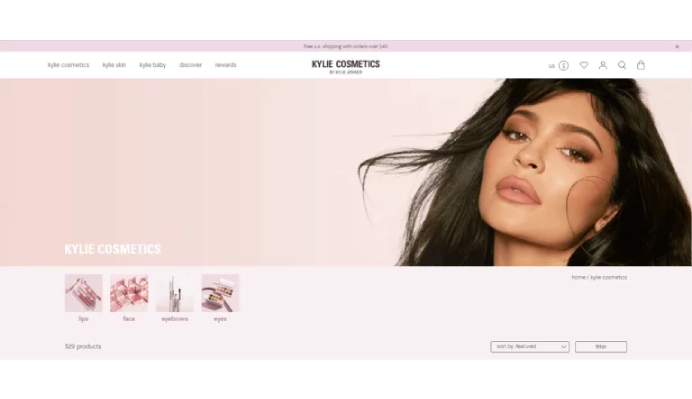
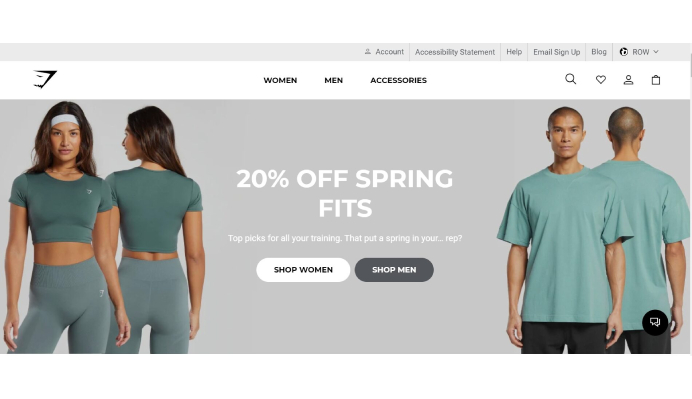
White Label Success Stories
Many Amazon sellers perform white-label dropshipping, and they are pretty good at it because they have fine marketing and decent pricing to market to their audience.
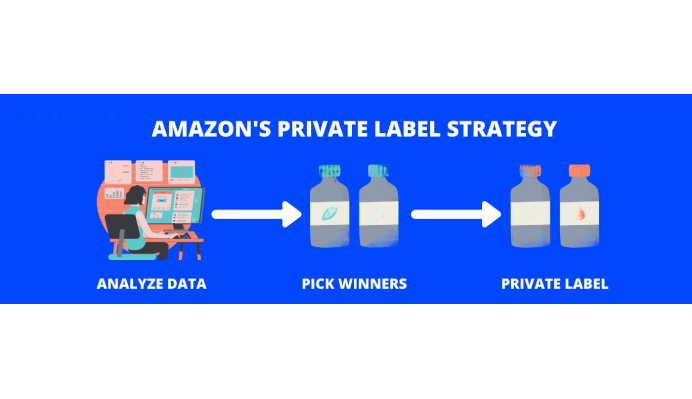
How to Transition Between the Models
Private labeling starts from the business, which starts with whitelabel dropshipping.
Starting With White Label and Moving to Private Label
Through white labeling, you will be able to test demand with very little risk. Once you have validated your product, private labeling helps you differentiate your brand.
Tips for a Smooth Transition
● It also helps in getting customer feedback to help improve products.
● Continually offer white-label products and gradually include private-label products in your mix of white-label products.
● Building your supply chain capability to match the increased demands for customization.
Conclusion
Private label and white label dropshipping work best for eCommerce entrepreneurs through each of the following factors. If you are putting the emphasis on brand building which lasts over time, you can go against what the crowd is buying and what’s popular in the long run, that is private labeling, but if you are all about speed and stress free brand building, white labeling is what you should put in mind.
This depends on your goals, niche, and resources you will choose the model to go with. If you’re building a premium brand or even taking your business right to the market, aligning your strategy to your vision will get you on the right track to success.
Acowebs are the developers of the WooCommerce Product Labels which let customers include custom product labels or product badges for the WooCommerce products.WooCommerce sales badges plugin provides you with different label styles and customizations for labels. It offers a easy-to-use UI to add labels to the selected products or categories and woocommerce email customizer using which you can easily build and customize WooCommerce emails with a drag-and-drop user interface.












 Login
Login
 Cart
Cart